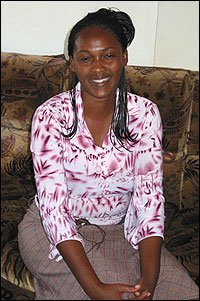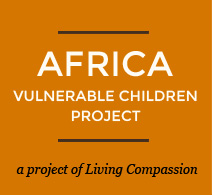Sunday was a much-needed day of rest, though both of us chafed at the “enforced” nature of the rest. So many things on our list and time running out.
Late in the day we met with a dynamic group of young women for an informal focus group. We learned a great deal more about the truly distressing conditions for women in Zambia. And we learned also about their strength and courage.
One of the women is thirty-three years old, has two children, and has had a good job for eleven years. When she was twenty-one she married. Her new husband worked at a local bank. Shortly after their marriage he lost his job and she supported him. As she says, “During that time he was very good.” They had their two children, Pauline continued to work to support the family, and he helped out as he could. Then he got another job in a bank. Though he lost the job after only one month, that first paycheck changed everything. He demanded that she turn her paycheck over as soon as she received it. He began to go out, often staying away for two or three days at a time. He was drinking a lot, and she knew he had at least one girlfriend. When he came home he demanded his rights as a husband, and she became very frightened that he would give her HIV. She sought help to leave him. Once, when he beat her, she asked the police for protection. They told her that if she were a better wife and learned to cook better food, he probably wouldn’t hit her. Several times he forced her, with the children, to leave the house, and they would sleep on the streets. Still she could gain no support in divorcing him. As the husband he had all the rights, even though she earned all the money. After several months, an enemy of his primary girlfriend came to her and offered to help her get proof of adultery—the only grounds for divorce in Zambia. They hatched a plot, caught the two together, went to the authorities, and Pauline was granted a separation. Five years later she got her divorce and has recently purchased her own small house in which to continue raising her children. She is very happy to be free, her health remains good, her children are healthy, and she is quite certain she will never marry again.
All the women told similar stories from their own experience or that of friends and relatives. They know they are right on the edge of a women’s movement in Zambia—perhaps throughout Africa—and are hopeful and optimistic, though they realize true equality is a long way in the future. At one point one of them asked about how it is where we come from. She explained that on television and in films men and women seem to relate so differently. The men seem to like the women, see them as friends and companions. They all agreed that that is not the case in Zambia. We asked if they knew of any happy marriages. They all shook their heads no. And it is certainly what we have observed here. We see men together, in pairs or in groups, and women together, but rarely a man and a woman together. We could count on one hand the number of times we’ve seen a family together—in all the times we’ve been here.
Each trip to Zambia seems to carry a theme, and this time it is clearly women. We are grateful that in the space of one week we have met so many strong, intelligent women. Several of them have agreed to serve on our board. One of them, Carol, is interested (and amply qualified) to come to the U.S. to study women in development. We are having our own experience of what so many have told us: if you want to make things happen in Africa, speak to the women.

